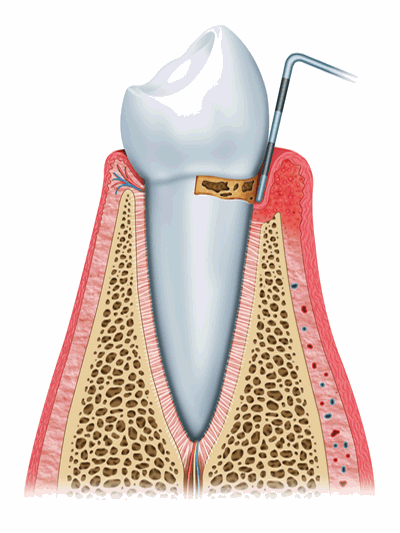Bleeding Gums
If your gums bleed when you brush, you may have gum disease and it could lead to bad breath, then inflamed, receding gums and, eventually tooth loss.
Whether you see blood in the sink when you brush occasionally or every day, you should never ignore bleeding gums.
Location
407 Blackpool Road , Ashton
Preston , Lancashire

Get In Touch
Give Your Mouth an Improved Routine; Get a Thorough Cleaning
Call Us
01772 – 726932
Hours
Monday – Friday : 9.00-17.30
Stop Bleeding Gums
While brushing, have you ever noticed a bit of blood on your toothbrush and wondered about the cause? Everyone’s gums bleed at some point in their lives for a variety of reasons, but the sight of a little red while you brush can still be unnerving.
Gums, or gingiva, are the pink tissue that cover your jawbone and hold your teeth in place. Healthy gums are firm, pink and surround each tooth. Our gums, play a critical role in the health of the entire body. While they are often overlooked in regard to optimal wellness, many struggle with gum disease and related oral conditions.
Some people think that gums bleed from brushing too hard. In fact, healthy gum tissues will not bleed with normal brushing. The usual cause of bleeding gums is an accumulation of dental plaque in the areas where your teeth meet your gums. Plaque is a film of bacteria, called a bio-film, which accumulates on your teeth. If you are not brushing and flossing effectively, plaque irritates your gum tissues and causes an inflammation and swelling called gingivitis. This causes your gums to bleed easily on contact with a toothbrush or floss.
Plaque Build Up and Periodontitis
Plaque that is not removed will eventually cause the gums to separate and recede from the teeth. Once gum recession occurs, pockets or gaps can form between the teeth and gums. Harmful bacteria and germs can get trapped inside these pockets, attacking the gums and bone supporting the teeth. Plaque will eventually harden into tartar.
At this point, gingivitis has progressed into the more serious condition called periodontitis. Periodontitis can cause tooth and bone loss. Other serious problems patients may experience include painful abscesses, drifting of the teeth which may interfere with chewing, and unsightly lengthening of the teeth with exposure of the roots. Periodontitis is also linked to more serious health concerns including an increased risk for diabetes and heart disease as well as an increased chance for complications during pregnancy.

Arrange An Examination
Causes and Symptoms of Gum Disease
Gum disease is classified in terms of severity, with gingivitis being the mildest form. Gingivitis is the most easily treated and reversible form of gum disease. However, if left untreated, gingivitis can advance to periodontitis (gum disease).
There are many factors that can make an individual more susceptible to gingivitis. Among them are:
Poor Oral Hygiene
Genetic predisposition
Diseases that suppress the immune system
Poor Nutrition
Hormonal changes
Pregnancy
Smoking
Some medications
Stress
Ageing
Viral and fungal infections
Systemic diseases and conditions (such as diabetes)
What Diseases Can Cause my Gums to Bleed?
Periodontitis (or gum disease) is one of the leading causes of bleeding gums. Gum disease has been linked to more serious conditions including type 1 and type 2 diabetes, heart disease, stroke and cancer. Even men’s sexual health can be affected by gum disease. Scientists believe that inflammation caused by periodontal disease may be responsible for the association between gum disease and these other conditions. Even more reasons not to ignore your bleeding gums.
Other less common causes of bleeding gums include: lack of Vitamin C, lack of Vitamin K, inflamed gums due to pregnancy, thrombocytopenia, hemophilia and scurvy.
Bleeding Gums Treatment
If plaque is allowed to gather for 24 hours or more, the inflammation in your gums becomes chronic. The continuous presence of bacteria makes it impossible for your body’s natural defences to fight the infection.
Chronic inflammation leads to a breakdown of the normal attachment between the teeth and the gums, causing the formation of “pockets.” Inside these pockets the infection continues to attack the tissues that support your teeth.
Bleeding gums can be treated by the removal of the source of bacteria. Proper maintenance of the teeth by the patient is a must. The most important part of the treatment is to help you achieve a good tooth cleaning technique.
This is much more important than any cleaning the dentist or hygienist does. If you are not cleaning off the plaque regularly, the disease process will continue to progress. Your cleaning is the most important part of the treatment!

How Gum Disease Affects Your Overall Health
At Lane Ends Dental Practice we stay informed of the latest scientific research available in the field of dentistry. We now know that if you have an unhealthy mouth you are at risk for developing serious systemic illnesses like cardiovascular disease, diabetes, pre-term labor, as well as auto-immune and inflammatory diseases.
If you already have a systemic illness and – on top of that – your mouth is unhealthy, it puts you at a higher risk of dying and developing crippling disabilities associated with your illness. Improving the health of your mouth can reduce your risk for future illness, reduce the negative impact your current illness is having on your body, can reduce the amount of medication you need, and in some cases can actually reverse your illness entirely.
Cosmetic Dentists
Years of Experience
Frequently Asked Questions
What causes bleeding gums?
There are several reasons as to why gums could bleed. If an individual brushes or flosses too aggressively, he or she risks injuring his or her gums, which leads to bleeding. Pregnant women, in particular, are more prone to bleeding gums due to the hormonal changes they are undergoing, and will need to be extra careful when brushing or flossing to avoid hurting themselves.
Gingival bleeding can also be a sign of gum disease, and it is usually accompanied by inflammation of the afflicted gums. Gingivitis and its advanced stage, periodontitis, can also cause bleeding gums, due to the destructive plaque buildup associated with the disorder. It goes without saying that whether a patient accidentally wounded his gums or is suffering from a disease,
Recommendations for Bleeding Gums
While some patients may begin to worry if they have bleeding gums, we want you to know that this isn’t a real cause to panic. There are actually several things you can do to help gum disease and bleeding gums. We recommend doing the following:
- Make sure to brush your teeth twice a day and floss as well.
- Use an electric toothbrush as it’ll get rid of the plaque and bacteria in your mouth more effectively.
- Eat a healthier diet to limit the bacteria that’s in your mouth.
- Quit using tobacco, if you do so.
- Visit your dentist for a cleaning and oral guidance.
How To Tell If Your Gums Are Unhealthy
A simple test is to vigorously floss between all of you teeth. Is there any blood on the floss? If so, you have gingivitis at least, and possibly more progressive gum disease. Healthy gums do not bleed when you clean your teeth with brushing or flossing. If your teeth and gums bleed when you brush and floss, you are at risk for serious illness.
Atlanta Dental Spa can help you reverse your risk and get your mouth healthy. Traditional dental offices do attempt to correct gum disease with processes that involve bloody, painful scraping of your teeth and roots. Atlanta Dental Spa has much better treatment options. We help our patients avoid deep, painful cleanings and gum surgery with our conservative custom treatments for unhealthy gums.
Treatment For Gum Disease
Routine dental care provides the opportunity to spot gum disease in the early stages and provide conservative, effective treatment. Treatment options can include:
- Dental cleanings: for very mild gingivitis, a thorough dental cleaning may be effective. In some cases, Dr. Benefield may recommend an additional professional dental cleaning during the year for patients with recurring gum disease.
- Scaling and root planing: this intensive cleaning will remove the plaque built up along the gum line and in pockets of the gums to allow the affected areas to heal.
What Are The Stages Of Gum Disease?
There are three stages of gum disease:
- Gingivitis: this is the earliest stage of gum disease, an inflammation of the gums caused by plaque buildup at the gumline. If daily brushing and flossing do not remove the plaque, it produces toxins (poisons) that can irritate the gum tissue, causing gingivitis. You may notice some bleeding during brushing and flossing. At this early stage in gum disease, damage can be reversed, since the bone and connective tissue that hold the teeth in place are not yet affected.
- Periodontitis: at this stage, the supporting bone and fibers that hold your teeth in place are irreversibly damaged. Your gums may begin to form a pocket below the gumline, which traps food and plaque. Proper dental treatment and improved home care can usually help prevent further damage.
- Advanced Periodontitis: in this final stage of gum disease, the fibers and bone supporting your teeth are destroyed, which can cause your teeth to shift or loosen. This can affect your bite and, if aggressive treatment can’t save them, teeth may need to be removed.
Do you have gingivitis or periodontitis?
If you aren’t sure, here are some tips for how to tell the difference.
- Age: Periodontitis is rare in teenagers, but they can develop gingivitis.
- Pain: Pain when chewing can be a sign that your periodontal disease has progressed from gingivitis to periodontitis.
- Tooth Condition: If you have gingivitis, your teeth should be firmly in place, although your gums may be irritated, red, and swollen. If a tooth or teeth are loose, it is more likely that you have periodontitis.
- Breath: If your gingivitis has progressed to periodontitis, you may notice that you have persistent unpleasant breath due to the presence of excess bacteria in your mouth.

Causes of Gingivitis
The most common cause of gingivitis is poor oral hygiene that encourages plaque to form on teeth, causing inflammation of the surrounding gum tissues. Here’s how plaque can lead to gingivitis:
- Plaque forms on your teeth. Plaque is an invisible, sticky film composed mainly of bacteria that forms on your teeth when starches and sugars in food interact with bacteria normally found in your mouth. Plaque requires daily removal because it re-forms quickly.
- Plaque turns into tartar. Plaque that stays on your teeth can harden under your gumline into tartar (calculus), which collects bacteria. Tartar makes plaque more difficult to remove, creates a protective shield for bacteria and causes irritation along the gumline. You need professional dental cleaning to remove tartar.
- Gingiva become inflamed (gingivitis). The longer that plaque and tartar remain on your teeth, the more they irritate the gingiva, the part of your gum around the base of your teeth, causing inflammation. In time, your gums become swollen and bleed easily. Tooth decay (dental caries) also may result. If n
Contact us
Call Us
01772 – 726932
Our Location
407 Blackpool Road Preston Lancashire R2 2DU
